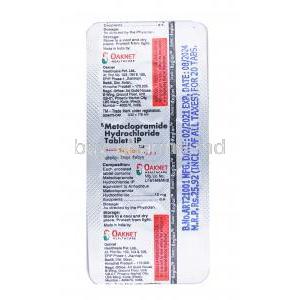Isopropamide/ Trifluoperazine
- Introduction to Isopropamide/Trifluoperazine
- Composition of Isopropamide/Trifluoperazine
- How Isopropamide/Trifluoperazine Works
- Uses of Isopropamide/Trifluoperazine
- Off-label Uses of Isopropamide/Trifluoperazine
- Dosage and Administration of Isopropamide/Trifluoperazine
- Side Effects of Isopropamide/Trifluoperazine
- Important Precautions with Isopropamide/Trifluoperazine
- Interaction of Isopropamide/Trifluoperazine with Other Drugs
- Warnings and Contraindications
- Careful Administration of Isopropamide/Trifluoperazine
- Administration Specifics for Different Populations
- Overdosage of Isopropamide/Trifluoperazine
- Storage Requirements for Isopropamide/Trifluoperazine
- Handling Precautions for Isopropamide/Trifluoperazine
Introduction to Isopropamide/Trifluoperazine
Overview and Historical Development
When combined with Trifluoperazine, isopropamide creates a mixture that has been utilized since the middle of the 20th century. Originally designed for its antipsychotic and anti-nausea effects, this blend has played a crucial role in addressing different mental health and stomach-related issues. Its effectiveness in handling conditions ranging from anxiety to bowel syndrome showcases its diverse use in the field of medicine.
Pharmacological Classification
Isopropamide is part of a group of drugs called anticholinergics, whereas Trifluoperazine falls under the category of antipsychotics. This combined categorization allows the medication to target pathways, providing a wide range of benefits in managing symptoms related to neurological and digestive issues.
Composition of Isopropamide/Trifluoperazine
Active Ingredients Breakdown
Isopropamide is mainly used to decrease the production of stomach acid and treat motility disorders while Trifluoperazine is known for its efficacy in alleviating symptoms of schizophrenia and acute anxiety.


Excipients and Their Roles
Excipients are essential, in formulating Isopropamide/Trifluoperazine as they help maintain the stability, bioavailability and effectiveness of the components. These can consist of binders, fillers and coatings that assist in controlling the release and absorption rates of the medication.
How Isopropamide/Trifluoperazine Works
Mechanism of Action Explained
Isopropamide/Trifluoperazine works by lowering the activity of dopamine and acetylcholine neurotransmitters, which play roles in mood regulation and gastrointestinal movement. By adjusting these neurotransmitters, the medication helps alleviate health symptoms and ease gastrointestinal issues.
Neurological and Gastrointestinal Effects
In terms of how it affects the brain Trifluoperazine works by blocking dopamine, which helps reduce symptoms of psychosis. On the hand Isopropamides anticholinergic properties ease spasms and discomfort linked to irritable bowel syndrome providing relief for the digestive system.
Uses of Isopropamide/Trifluoperazine
Primary Indications in Medical Treatment
Therapeutic Effects and Benefits
Off-label Uses of Isopropamide/Trifluoperazine
Exploration of Non-Approved Uses
Isopropamide/Trifluoperazine is sometimes recommended by healthcare providers for addressing symptoms in conditions like PTSD and other stress-related disorders, even though it's not officially sanctioned for these purposes. This showcases its range of applications and its ability to effectively alleviate various symptoms.
trifluoperazine for anxiety
Evidence and Studies Supporting Off-label Use
Recent research indicates that using this medication off-label may offer advantages when standard treatments prove ineffective. Ongoing studies are delving deeper into its possibilities with a focus, on expanding the knowledge and utilization of this combined treatment approach.
Dosage and Administration of Isopropamide/Trifluoperazine
Standard Dosing Guidelines
The recommended dosage varies depending on the ailment usually beginning with a small amount that is gradually adjusted according to how the patient reacts and tolerates it. It's important to follow the doses carefully to ensure optimal effectiveness and reduce potential risks.
Adjustments for Specific Populations
It is important to adjust the dosage for groups, including older individuals, those with kidney or liver issues, and patients who are prone to side effects. Customizing the dosage helps maintain the safety and efficacy of the treatment for a range of patients.
Side Effects of Isopropamide/Trifluoperazine
Common Side Effects Overview
- Feeling sleepy and lightheaded can impact your tasks and movement.
- Patients often mention experiencing mouth and fuzzy vision during treatment.
- Some people may encounter stomach issues, like constipation and feeling queasy.

Managing and Mitigating Side Effects
In managing a condition it is important to check adjust dosages as needed and occasionally consider adding other treatments to help manage side effects. Educating patients on identifying signs of severe side effects is also vital, for prompt intervention and treatment.
Important Precautions with Isopropamide/Trifluoperazine
Precautions Before Starting Treatment
Prior to starting treatment with Isopropamide/Trifluoperazine it is crucial to conduct a medical assessment to confirm its appropriateness. This evaluation should involve an examination of the patients medical background and a conversation, about any possible sensitivities or restrictions. It is also advisable to perform evaluations of liver and kidney function in order to customize treatment strategies efficiently.
Monitoring Requirements During Therapy
Regularly checking on patients is crucial for improving treatment results and reducing dangers. This involves evaluating mental well-being to catch any worsening of psychiatric issues, conducting routine blood tests to monitor blood-related side effects, and performing electrocardiograms for patients with heart-related risks.
Interaction of Isopropamide/Trifluoperazine with Other Drugs
Common Drug Interactions and Their Implications
- Using anticholinergic medications at the same time may worsen side effects, like dry mouth, difficulty urinating and constipation.
- Combining these with depressants could enhance sedative effects, raising the chances of breathing problems and extreme drowsiness.
Avoiding Harmful Combinations
Before combining Isopropamide/Trifluoperazine with medications, it's important to consult a healthcare provider. Using a drug interaction checker each time you get a prescription can help avoid negative interactions making sure the medication is used safely and effectively.
Warnings and Contraindications
Critical Warnings for High-Risk Populations
Patients who have previously experienced issues, glaucoma, or prostatic hypertrophy, should be careful when using Isopropamide/Trifluoperazine as it may worsen these conditions. Additionally, individuals who are sensitive to either ingredient in the medication should refrain from using it.
Absolute Contraindications for Use
This medicine should not be used by people with myasthenia gravis, serious liver problems, or acute narrow-angle glaucoma. It is also not recommended for those who have recently had a heart attack or are experiencing heart conditions.
Careful Administration of Isopropamide/Trifluoperazine
Guidelines for Safe Use in Vulnerable Groups
Elderly individuals may need dosages due, to their slower metabolisms and excretion rates. When it comes to children and teenagers it's important to adjust dosages to reduce side effects while maintaining effectiveness.
Special Handling Instructions
It's important to handle Isopropamide/Trifluoperazine with care, making sure not to crush or break the tablets when giving them to maintain the dosage and prevent any exposure to drug dust.
Administration Specifics for Different Populations
Elderly: Adjustments and Considerations
When dealing with individuals, it's crucial to begin with a smaller dose and keep a close eye on any anticholinergic and CNS side effects. Adjust the dosage according to their tolerance levels and how they respond clinically.
Pregnant Women and Nursing Mothers: Safety Profile and Recommendations
It is advised to avoid using Isopropamide/Trifluoperazine while pregnant or breastfeeding because of risks to the unborn child or nursing baby. It is recommended that treatment options be explored with clearer safety records.
Children: Dosing and Safety Evaluation
It's important to be careful when using this with children. Start with the dose and adjust as needed depending on how they respond to the treatment.
Overdosage of Isopropamide/Trifluoperazine
Signs and Symptoms of Overdose
Signs of taking much of a substance can lead to intense drowsiness, disorientation, low blood pressure, and side effects like a dry mouth, fuzzy vision, and difficulty urinating. In situations breathing problems and irregular heartbeats might also manifest.
Emergency Management and Antidotes
It is essential to seek medical help in case of an overdose. The treatment includes providing supportive care focusing on maintaining the proper functioning of the respiratory and cardiovascular systems. In cases of anticholinergic effects, antidotes such as physostigmine may be administered to counteract them.
Storage Requirements for Isopropamide/Trifluoperazine
Optimal Storage Conditions
Remember to keep the medication in a dry place, at room temperature, to maintain its effectiveness and prolong its storage life.
Shelf Life and Disposal Methods
Typically medications can be stored for 2 to 3 years after they are manufactured. It's important to dispose of any unused medication correctly to avoid harming the environment and accidental ingestion.
Handling Precautions for Isopropamide/Trifluoperazine
Safe Handling Practices
Healthcare professionals need to wear gloves while dealing with medications. They should wash their hands well after giving them to avoid any absorption through the skin or unintentional contact with mucous membranes.
Preventing Contamination and Exposure
To maintain the drugs potency and ensure safety it is important to store and handle it correctly to avoid contamination, which could result in decreased efficacy or potential health hazards, for individuals.












